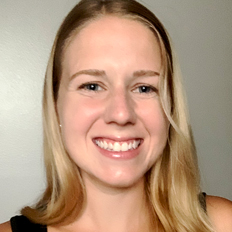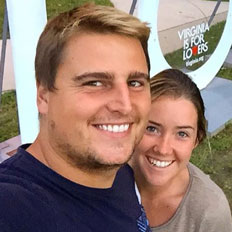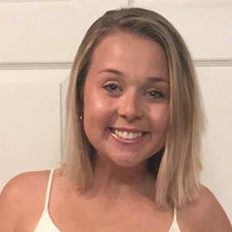Courses
PS 101 Introductory Psychology: 3 semester hours
This first course gives a broad overview of the field of psychology. Major areas studied include the physiological basis of thought and action, perception of the environment, learning, motivation, behavior disorders, and behavior in groups. Though basic concepts and principles are stressed, the student is introduced to a variety of approaches to the subject matter of psychology. The student also becomes acquainted with some of the methods psychologists use to answer questions about behavior and mental processes. Students may have the opportunity to serve as research participants. Prerequisite for all other psychology courses. (Offered fall and spring semesters).
PS 201 History and Systems of Psychology: 3 semester hours
A study of the historical, philosophical, and conceptual foundations of contemporary psychology.
PS 205 Psychology Of Adjustment: 3 semester hours
The focus of this course is on the study of the problems and processes of psychological adjustment to the stresses, conflict, anxieties, and frustrations of life today. This course focuses on several topics in depth: Stress and stress management, self-esteem, communication, relationships, and work adjustment. Student participation is required. (This course does not count toward the major. It counts toward the holistic health domain of the core curriculum).
PS 210 Stress Management: 3 semester hours
This multidisciplinary course examines stress from physiological, psychological, and sociological perspectives. Topics include the mind-body relationship, stress and disease, sociocultural inequities in stress/health, occupational stress, exercise and stress, and a multitude of interventions (e.g., breathing, progressive muscular relaxation, meditation, imagery, assertiveness training). This course may also include a number of physical activity days (e.g., yoga, recreational games, weight training).
PS 214 Psychology of the Middle School Student: 3 semester hours
This class will examine the social, emotional, physical and cognitive development of children in middle school. Students in this course will learn about the unique needs, abilities, and interests of middle school-aged students as they experience conflicting societal expectations and options. Prerequisites: PS 101 and PS 224. (Students cannot receive credit for both PS 214 and PS 215).
PS 215 Adolescent Psychology: 3 semester hours
The focus of this course will be on the social, emotional, physical, and cognitive development of persons aged 13-20. The course will examine how the concept of adolescence has changed over the years, and how families, peers, school, and the culture influence adolescent development. In addition, the course will examine in depth a number of problems facing today's teenager like drug use, sexual activity, and violence. Prerequisite PS 101 and PS 224. (Students cannot receive credit for both PS 214 and PS 215).
PS 221 Social Psychology: 3 semester hours
Social psychology focuses on human social relationships. This course studies the influence of others on individual behavior and attitudes, various sorts of interaction between individuals, and behavior of people in groups. Topics include conformity, helping behavior, persuasion, social cognition, attitude formation and change, aggression, sex roles, prejudice, and attraction. Prerequisite PS 101. (Offered fall and spring semesters).
PS 224 Developmental Psychology: 3 semester hours
This course provides a comprehensive overview of normal human development throughout the entire life span. Similarities and differences in the normal biological, cognitive, social and emotional development of humans will be studied. Prerequisite: PS 101. (offered fall and spring semesters).
PS 227 Cognitive Psychology: 3 semester hours
The purpose of this course is to provide an overview of the field of cognitive psychology. The course summarizes experimental research in cognitive psychology, discusses the major theories in the field, and attempts to relate the research and theories to cognitive tasks that people, like you, encounter in everyday life - for example, reading, driving, studying, judging advertising claims, evaluating legal testimony, solving problems on the job, and making healthcare decisions. Includes.
PS 259 Health Psychology: Health & Wellness Applied: 3 semester hours
Health psychology is devoted to understanding psychological influences on how people stay healthy, why they become ill, and how they respond when they get ill. This course will explore the interface between biopsychological theory/research and health-related issues (e.g., stress, coping, behavior change) among healthy and clinical cohorts (e.g., cancer, diabetes, chronic pain). Prerequisite: PS 101.
PS 306 Clinical Psychology and Mental Health: 3 semester hours
This course is an overview of disorganized states of human functioning, including disorders of mood, thought, and behavior. This course follows the DSM system of classification, while explaining disorders from various perspectives. Prerequisites: PS 101 and at least two other psychology courses. (Offered fall semester).
PS 319 Classic Theories of Personality: 3 semester hours
The study of major personality theorists who did most of their theorizing prior to 1970 including early key psychoanalysts, behaviorists, trait theorists, and humanist. The focus will be on the theories of individual theorists. Topics include normal and abnormal psychology functioning, personality development, and research done on these theories. Representative assessment devices will be demonstrated and selected research will be noted. Along with textbook, students will be asked to read selected portions of theorists own writings. Prerequisite: PS 101. (Offered fall semester).
PS 325 Statistics for Psychology: 4 semester hours
This course is an introduction to fundamentals of statistical analysis in the applied area of psychology and related social sciences. Students will learn to analyze data, interpret the results of research using basic statistical methods, and understand the conceptual foundation, appropriate use, and limitations of these statistical methods. Topics include descriptive statistics, estimation, hypothesis testing, t-tests effect size, power analysis, bivariate correlation/regression, analysis of variance, and nonparametric tests. Use of statistical computer software is integrated throughout the course. Prerequisite: PS 101 and junior standing. Students should have the equivalent of one year of high school algebra before enrolling in PS 325. Completion of MA 135 (Basic Statistics) before PS 325 is strongly recommended. (Offered fall semester).
PS 345 Research Methods for Psychology: 4 semester hours
This course is an introduction to the scientific research methods used in psychology and related social sciences. Students will learn about the science of psychology, experimental and non-experimental methods of investigation, and ethics in psychological research. Students will demonstrate knowledge and skills necessary to formulate research questions and hypotheses, develop research designs, operationalize variables and gather data in an ethical manner, analyze data using statistics, interpret results of statistical analyses, and write a scientific paper in APA style. Students must enroll in PS 345 the semester immediately following PS 325. Prerequisite: PS 101 and PS 325 (with a letter grade of at least a C). (Offered spring semester)..
PS 349 Industrial/Organizational Psychology: 3 semester hours
This course involves a general orientation to the field and is designed to familiarize students with application of psychological principles and theory in the workplace. Topics include methods of investigation, job analysis, employee selection, training, performance appraisal, employee motivation and job satisfaction. Prerequisites: PS 101. (Offered winter term).
PS 371 Counseling Theories and Application: 3 semester hours
This course introduces students to various aspects of the counseling field. The course will focus on professional and ethical issues in counseling, and on major theoretical approaches to individual counseling. Attention will be given to evidence-based practice in counseling. Various approaches to counseling will be demonstrated. Prerequisites: PS 306 and SW 245 and junior or senior status (Offered spring semester).
PS 385 Cognitive Neuroscience: 3 semester hours
This course includes the study of mental processes based on information processing and cognitive neuroscience models. Topics include methods of investigation, visual and auditory processing, language, speech, working memory and long-term memory, autobiographical memory, executive processes, and consciousness. A brief introduction to affective and social neuroscience is included. Prerequisites: PS 101 and BI 123 or BI 125. (Offered fall semester).
PS 386 Biological Psychology: 3 semester hours
This course involves an overview of biological explanations of behavior. The course begins with a description of the dynamic activity of neurons and the basic anatomy of the nervous system. Building upon this foundation, topics include: methods of investigation, drugs and behavior, development and evolution of the brain, sensory and motor processes, waking and sleeping, hunger and thirst, sexual behavior, learning and memory, emotions, mood disorders, and schizophrenia. Prerequisites: PS 101 and BI 125 or BI 126 or Permission of instructor. (offered January term).
PS 401 Directed Readings in Psychology: 1 semester hour
This course may be initiated by an instructor or by a student or group of students on a topic of special need or interest. Prerequisites: PS 325, PS 345 (with a grade of B- or better), psychology major, junior or senior status, courses related to reading objectives, and written consent of the instructor and the Department of Psychology. Formal application must be made to the department during or at the end of the semester preceding expected enrollment (no later than one week after final exams). Credit is variable (up to 3 semester hours), depending upon the scope of the topic.
PS 402 Directed Readings in Psychology: 2 semester hours
This course may be initiated by an instructor or by a student or group of students on a topic of special need or interest. Prerequisites: PS 325, PS 345 (with a grade of B- or better), psychology major, junior or senior status, courses related to reading objectives, and written consent of the instructor and the Department of Psychology. Formal application must be made to the department during or at the end of the semester preceding expected enrollment (no later than one week after final exams). Credit is variable (up to 3 semester hours), depending upon the scope of the topic.
PS 403 Directed Readings in Psychology: 3 semester hours
This course may be initiated by an instructor or by a student or group of students on a topic of special need or interest. Prerequisites: PS 325, 345 (with a grade of B- or better), psychology major, junior or senior status, courses related to reading objectives, and written consent of the instructor and the Department of Psychology. Formal application must be made to the department during or at the end of the semester preceding expected enrollment (no later than one week after final exams). Credit is variable (up to 3 semester hours), depending upon the scope of the topic.
PS 411 Psychology in Practicum: 1 semester hour
This course provides a brief opportunity for professional interaction in selected agencies or institutions under the supervision of a field professional. The student could take PS 413 (3 credit hours) at the same agency site in addition to this course, but for no more than four semester hours of internship in total. The amount of credit signifies the amount of time the student is at the agency. PS 411 (1 credit hour) implies being at an agency for three to four hours per week. This course is designated Pass/Fail by the instructor. Prerequisites: (1) permission of the department; (2) sophomore or higher standing; (3) completion of at least three psychology courses; and (4) a minimum of 3.00 in both overall GPA and in all psychology courses. Formal application must be made in the semester prior to the internship (offered fall, spring and summer terms).
PS 413 Internship in Psychology: 3 semester hours
This course provides a concentrated opportunity for professional interaction in selected agencies or institutions under the supervision of a professional in the field. The student could take PS 411 at the same agency site in addition to this course, but for no more than four semester hours of internship in total. The amount of credit signifies the amount of time the student is at the agency. PS 413 (3 credit hours) implies being at an agency for ten to twelve hours per week (e.g., 120 hours/semester). This course is designated Pass/Fail by the instructor. Prerequisites: (1) permission of the department; (2) completion of at least five psychology courses; (3) completion of PS 306 and SW 245 [or have permission of the instructor]; (4) a minimum of 3.00 in both overall GPA and in all psychology courses; and (5) junior or higher standing. Formal application must be made in the semester prior to the internship (offered fall, spring and summer terms).
PS 425 Research Seminar: 3 semester hours
This course will give students experience with the entire research process. As a class, students will design and implement a research study. In addition, the class will gain experience at analyzing data and preparing the study for presentation at a psychological conference. Prerequisite: Psychology major or minor, junior or senior standing, and PS 325 and PS 345 with a grade of B- or better. This course is offered every couple of years.
PS 441 Independent Study in Psychology: 1 semester hour
Prerequisites: PS 325, PS 345, (with a grade of B- or better), psychology major and junior or senior status. Formal application must be made to the department during or at the end of the semester preceding enrollment (no later than one week after final exams). Credit is variable (up to 3 semester hours), depending upon the scope of the topic. (See Independent Study section).
PS 442 Independent Study in Psychology: 2 semester hours
Prerequisites: PS 325, PS 345, (with a grade of B- or better), psychology major and junior or senior status. Formal application must be made to the department during or at the end of the semester preceding enrollment (no later than one week after final exams). Credit is variable (up to 3 semester hours), depending upon the scope of the topic. (See Independent Study section).
PS 443 Independent Study in Psychology: 3 semester hours
Prerequisites: PS 325, 345, (with a grade of B- or better), psychology major and junior or senior status. Formal application must be made to the department during or at the end of the semester preceding enrollment (no later than one week after final exams). Credit is variable (up to 3 semester hours), depending upon the scope of the topic. (See Independent Study section).
PS 450 Senior Seminar: 3 semester hours
This course is designed as the final psychology course for psychology majors. In this seminar, students will review the entire field of psychology and study in-depth a number of topics selected by the class. Through discussion, guest lectures, and student presentations, students will have the opportunity to integrate, synthesize and apply the knowledge and skills they have gained from other courses. Prerequisites: Senior psychology major, PS 325 and PS 345. (PS 345 may be waived after consultation with instructor. (Offered fall and spring semesters).







